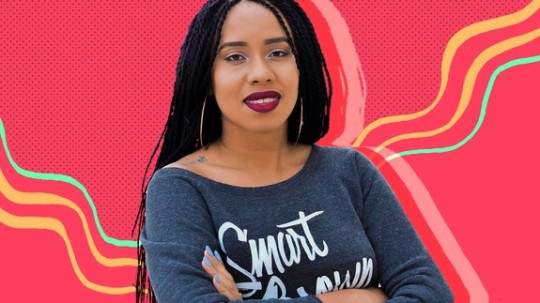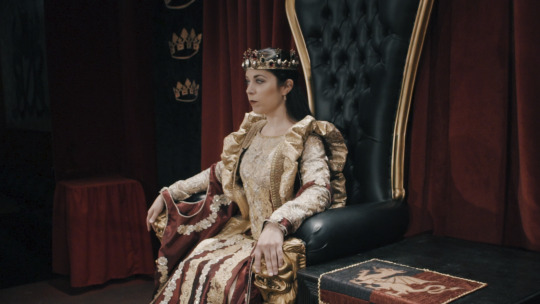#actually hilarious that me and my friends are putting more thought into the racial implications we make
Explore tagged Tumblr posts
Text
Listen I like black Ariel and black Tinkerbell conceptually and I'm a fantasy enjoyer so I don't necessarily think there's anything inherently "dehumanizing" about nonhuman fantasy races as in I don't have trouble relating to them or really see them as "other" when I'm watching/reading media they appear in.
That said I think it's real interesting that when Disney is deciding which characters get to be black this time around they made Belle and Cinderella who both are human with no qualifications throughout their movies white and then decided to racebend the mermaid and the fairy.
Again, not necessarily mad about Black Tink or Black Ariel. Just curious as to what goes into deciding which live action princesses are black and why.
#Disney#actually hilarious that me and my friends are putting more thought into the racial implications we make#in a comic based on our fucking d&d game#than the largest media corporation in the world is in multi billion dollar movies
8 notes
·
View notes
Text
Jouelzy is here to talk — and whether you're a #SmartBrownGirl or not, you should listen

This piece is part of an ongoing series exploring what it means to be a woman on the internet.
In early May, Kanye West said something that made the nation groan — again.
“When you hear about slavery for 400 years. For 400 years?! That sounds like a choice," he bellowed, voice echoing across the walls of the TMZ offices and broadcast on social media timelines. Fans were in an uproar, loyalists stood by the erratic remarks from their hero, while hip hop analysts argued the implications of a pioneer’s words.
Two months later, a vlogger who goes by the name Jouelzy uploaded a video to YouTube that shared a little over 10 minutes of discussion about West’s charged comments. That is a long time to wait before producing content that’s riffing off of a viral moment. Just think of how quickly we all cycle through challenges or memes online, and the insane speed at which we move on to the next big thing.
But that is the beauty of the work that Jouelzy, 33, has consistently churned out to viewers over the years.
SEE ALSO: The unstoppable Molly Burke: A day in the life of a blind YouTuber
Today, Jouelzy is as synonymous with her compelling videos on YouTube as she is with the hashtag #SmartBrownGirl, a movement she began to encompass the critical content she produces. At first glance, it seems like a rallying cry — perhaps akin to CaShawn Thompson's #BlackGirlMagic. But while it evokes a similar sentiment, it has also become a space for a community Jouelzy ushered. It's created space for folks that might not have felt comfortable or accepted in other corners of the internet, and for people craving brash and critical dialogue in a wild, wild web of underwhelming takes.
Before there was an official hashtag to align with her content, smart brown girls were always at the forefront of her work. “I was just talking to myself in the beginning,” she explained, and talking to herself attracted others similar to her, birthing a strong movement on social media built of “smart brown girls” and others.
“[#SmartBrownGirl] was initially to start a conversation and just to be able to work through things that I was going through myself and to see myself represented,” she explained. “Now it’s more so that I want to encourage a critical dialogue and critical thought because I realized so much of what we consume on social media and in media in general in our day to day is very surface, shallow content.”
youtube
With each upload, Jouelzy tackles the many conversations of the moment but her conversational approach is wrapped in a blanket of time and care that is invaluable. By the time a video of hers lands on your screen, the viral moment may have passed, but the nuanced discussion that matters is still going strong in cultural conversations — and Jouelzy’s strength is giving viewers the tools to understand the context from her perspective around what exactly is going on in this complicated world we live in.
Nowadays the Texan is a YouTube Creator for Change and member of a Google cohort focused on public policy, but like many of us who grew up in the generation of influencer, Jouelzy — who keeps her legal name to herself — just wanted free weaves at the beginning.
While she held down a job in advertising, and in the midst of applying for a masters degree in business administration, she did what many with access to the internet and a camera have done. She uploaded her first video in 2010 and after some time doing the tutorials, things began to mold into a more concrete path that just worked for her.
“I just was dealing with a lot of ways in which the world was trying to box me in and tell me who I needed to be in order to be respected,” she explained, recounting the shift between making those hair videos and transforming her channel into a burgeoning hot spot for nuanced conversations. “I was having a hard time with it because I didn’t want to sand down to fit into a perfect little box of what it means to be a respectable black woman in ways that other people don’t have to sand themselves down.”
There’s also the harsh reality about the toll that being a woman, particularly a black woman can bring, and while we witness that manifest in real life, it also impacts those online.
“I was watching my Facebook timeline change,” Jouelzy said, recalling the months well before the 2016 U.S. presidential election. "I think in 2015, I saw someone tweet “Hillary, if I have to,” she said. “I thought this was fascinating, and then watching that thought process be manipulated by outlets to sway perceptions amongst black women.”
It was that shift, coupled with the desire to dive deeper into conversations that platforms like Twitter or Instagram limited, that propelled her to do the work that’s resulted in hundreds of videos. Those videos, whether about celebrities or racial discourse, offer up another way to consume the news — but from a friend who is willing to go there, all while having the insight to understand how exactly millennials consume news.
“I think it’s becoming really dangerous, the fact that we have this mass access to information and a lot of us don’t know how to consume that in relation that’s actually productive and honest and able to verify the correct sources to pull things from,” she said.
News consumption has changed over the years. According to a study conducted by the American Press Institute, millennials, as compared to their boomer predecessors, are often exposed to even more diverse stories because of the various means from which they get their news — including everything from Twitter to group text messages. The same study, which surveyed over 1,000 people on the phone and in-person between the ages of 18 and 34, also suggests that 83 percent of millennials use YouTube to get their news.
Constant attacks on the press from the White House and a headline-skimming culture (thanks to the ubiquitous presence of social media timelines) are just a few of the problems facing new and traditional media. And considering most newsrooms are overwhelmingly white, a perspective from a middle-class, college-educated black woman who is not affiliated with a major media organization makes her point of view even more critical. But for Jouelzy, it’s more important now than ever to, in her words, “not tell people what to think but encourage people to think.”
And she does exactly that — in an entertaining fashion.
If you wander over to her YouTube channel, you'll find some videos dubbed "Get Ready With Me" — they are like makeup tutorials with a social impact twist and show Jouelzy vulnerable and open on camera as she prepares for the day. Others, like a series called "Pop Snark," are specifically devoted to the latest news in pop culture. There are also reviews of shows like Insecure, a series called #Blessed, and videos tackling the topics on everyone’s minds. The common thread is a hilarious and accessible way of understanding why something is happening, not just that it’s happening.
youtube
“We tend to have a binary thought process, everyone tends to talk like they have the answer,” Jouelzy explained. “I think the more that I’ve gotten into trying to hold these conversations for my smart brown girl audience about things around societal issues that we deal with, the way we are using pop culture, the way pop culture intersects with political history, and how we view each other or even how capitalism impacts our life, [the more] I try to step away from trying to give the answer on things or act like I have the solution or that correct way of thinking because you’re just going to end up tripping yourself up,” she said.
“The internet has its way of doing that to women who inhabit its corridors,” Jouelzy said. Despite her lack of inhibition when it came to launching her YouTube channel in the beginning, there’s still a lot she keeps offline. “It went decently from the beginning, but I think the more that I’ve gotten into this and the more that I’ve been vulnerable and talking about things that were more intimate to myself that I have picked up some weird insecurities,” she explained. “Now I’m more cognizant of the fact that people don’t like me and beforehand, I wasn’t.”
But people do like her. A lot of people. She has nearly 175,000 subscribers.
"I was never that great with school or in a classroom setting," Dante Dcasso, a fan, said over email. "Jouelzy has a way of keeping me intrigued and wanting to learn more about certain topics when it comes to politics, race, women’s history, etc. I love that I can watch a video about a Kardashian, but also get a lesson," he explained. "She comes off as relatable and I trust her."
Dcasso found her work randomly on YouTube but since then, has remained an avid viewer after being touched by her discussions around mental health. "I remember immediately binge watching her past content. I wanted to get to know her and I wanted to put everyone on. Jouelzy is the older black sister that I never had," Dcasso explained.
An older black sister whose goals are to bring the #SmartBrownGirl movement everywhere.
Jouelzy's working on a top-secret podcast, continuing writing, and trying to make her way to television screens as a commentator. She credits YouTube for being an "equalizer" that has brought support and access and is now helping her actualize bigger dreams — but there's no doubt that like her work in the past, she'll take us all along with her.
WATCH: The first queen of 'Medieval Times' is ushering in a new era of representation

#_author:Martha Tesema#_category:yct:001000002#_lmsid:a0Vd000000DTrEpEAL#_uuid:c211ace9-6f95-3dbf-9a31-f9e6f0a16a08#_revsp:news.mashable
0 notes